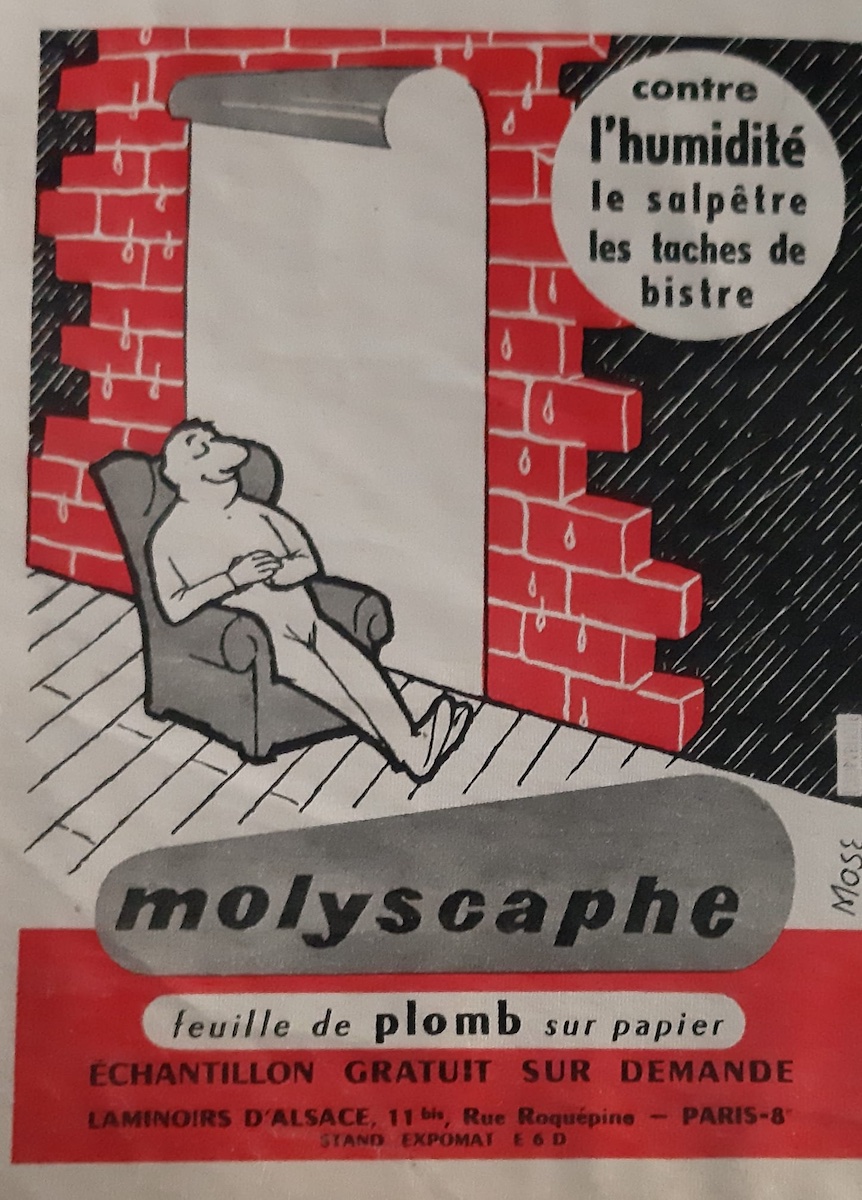Workshop:
A tale of two cities: The decline in child exposure to lead in Paris and New York
Tuesday, May 3, 2022 | 3-6 p.m. (Paris) | 9 a.m. Noon (NYC)
 French advertising from 1950-1960
French advertising from 1950-1960
Blood-lead levels have declined dramatically in both Paris and New York over the past 50 years.
This is good news because early-life exposure to lead has been clearly been implicated in increased likelihood of diminished intellectual function in children, learning and behavioral difficulties at school, juvenile detention, as well as reduced income and cardio-vascular disease later in life. The decline in lead exposure in both cities is primarily the result of bans on the use of lead-based paint in the 1970s and the phasing out of lead additives to gasoline in the subsequent decade. This doesn’t mean avoidable lead exposure of children has ended in both cities or elsewhere around the world. A significant number of children still ingest chips of old lead-based paint, play in areas where soil is contaminated with legacy lead from gasoline and other sources, or drink water supplied by lead pipes.
The goal of this workshop is to review progress made in Paris and New York to reduce lead exposure in recent decades and the extent to which continued exposure could and should be reduced further. Studies documenting still higher levels of exposure in other parts of the world where lead-based paint is widely sold or leaded-gasoline was banned only more recently will provide further perspective. The workshop will feature presentations by university-based health scientists and geochemists as well as public health managers for the government and environmental activists
Hosts :
– Paris: Lex van Geen, Lamont-Doherty Earth Observatory and Institute Science Visitor
– New York: Brian Mailloux, Barnard College
Topics and speakers:
– Ana Aizer, Economics, Brown University: Juvenile detention and lead exposure in Rhode Island.
– Jacky Bonnemains, Robin des Bois, Association de protection de l’Homme et de l’environnement : How did the Notre-Dame de Paris fire bring the lead issue to the forefront?
– Florence Bodeau-Livinec, École des Hautes Études en Santé Publique, Rennes: Lead exposure in West Africa.
– Steven Chillrud, Lamont-Doherty Earth Observatory: History of lead fallout in New York City.
– Andrew Faciano, New York City Department of Health: The NYC Healthy Homes Program.
– Gabriel Filippelli, Earth Sciences, University of Indiana: Urban exposure to lead and the role of citizen-science.
– Philippe Glorennec, École des Hautes Études en Santé Publique, Rennes: Sources of lead exposure in France.
– Wynnie-Fred Victor Hinds, City of Newark Environmental Commission and Weequahic Park Association.
– Agnès Lefranc, Direction de la santé publique, Ville de Paris: Exposure to lead in Paris.
– Ana Navas-Acien, Mailman School of Public Health, Columbia University : Health impacts of lead exposure.
– Dominique Weis, Earth, Ocean, and Atmospheric Sciences, University of British Columbia : Tracing lead with honey.
To attend the workshop, please register here
https://columbiauniversity.zoom.us/meeting/register/tJEtdeqspzIjE9wriu53BZhuHYtFnXf48Xrj
 Imprimer cet article
Imprimer cet article









